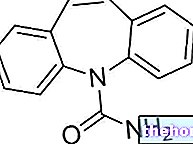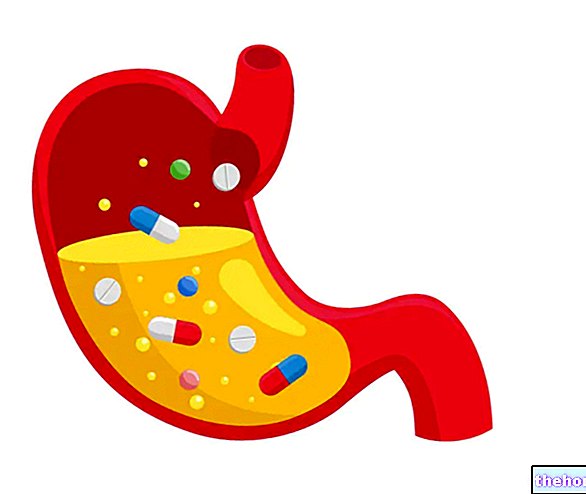ROVAMICINA ® is a Spiramycin-based drug
THERAPEUTIC GROUP: Antibacterials - Antibiotics for systemic use

Indications ROVAMICINA ® Spiramycin
ROVAMICINA ® is a drug used in the treatment of infections caused by germs sensitive to macrolides and in particular to Spiramycin.
Mechanism of action ROVAMICINA ® Spiramycin
Spiramycin, active ingredient of ROVAMICINA ®, is a molecule extracted from cultures of Streptomyces Ambofaciens, with a natural antibacterial activity also directed towards Mycoplasma.
Part of the category of macrolides with 16 carbon atoms, it owes its antibacterial activity to the ability to bind the 50S ribosomal subunit, preventing binding with the peptidyltransferase enzyme and therefore hindering the normal elongation of the nascent peptide chain.
All this takes the form of a bacteriostatic action capable of determining a prompt regression of the symptoms in progress.
From a pharmacokinetic point of view, Spiromycin is rapidly absorbed, with a bioavailability of around 30%, and with a peak time of about 2-3 hours, spreading readily in the various tissues and concentrating mainly in breast milk and bile.
The latter represents the main route of elimination, considering that only 10% of the drug is eliminated by the kidney.
Different studies show the great efficacy of this antibiotic in the treatment of infections of the oral cavity in particular of periodontal diseases and gingivitis and as an adjuvant also of alveolar pyorrhea.
Respiratory tract infections, some complications of exanthematous pathologies and soft tissue infections, represent other pathological manifestations in which treatment with ROVAMICINA ® is required.
Studies carried out and clinical efficacy
1. SPIRAMICIN IN PERIODONTITES
Acta Odontol Latinoam. 2011; 24: 115-21.
The effect of spiramycin on Porphyromonas gingivalis and other "classic" periopathogens.
Chiappe V, Gómez M, Fernández-Canigia L, Romanelli H.
Work that demonstrates how bacterial infections associated with bacterial periodontitis can effectively regress after 7 days of systemic administration of Spiramycin.
2. HEPATOTOXICITY "DUE TO SPIRAMYCIN AND METRONIDAZOLE
Arab J Gastroenterol. 2011 Mar; 12: 44-7.
Severe hepatotoxicity associated with the combination of spiramycin plus metronidazole.
Hussein R, El-Halabi M, Ghaith O, Jurdi N, Azar C, Mansour N, Sharara AI.
Case report that demonstrates the onset of acute fulminant hepatotoxicity in two patients receiving Spiramycin and metronidazole. Only one of the two was responsive to corticosteroid therapy, guaranteeing remission of the damage.
3. SPIRAMYCIN IN CARDIOLOGY
Georgian Med News. 2007 Sep;: 11-3.
Oral spiramycin for prevention of restenosis in coronary arteries.
Aleksiadi ER, Shaburishvili TSh.
Study that demonstrates how the oral administration of Spiramycin is effective in preventing restenosis of the coronary artery, the main complication of percutaneous coronary intervention.
Method of use and dosage
ROVAMICINA ®
3 million IU film-coated tablets of Spiramycin.
The therapeutic scheme with Spiramycin generally provides for the administration of 2-3 tablets of 3 million IU daily. to be taken with plenty of liquid.
Correction of standard dosages may be necessary in particular populations such as pediatric and senile.
Warnings ROVAMICINA ® Spiramycin
The intake of ROVAMICINA ® should be preceded by a careful medical examination aimed at evaluating the clinical picture of the patient, his physiopathological conditions and therefore the prescribing appropriateness.
Particular caution in the use of this drug should be reserved for elderly patients or patients suffering from liver and kidney diseases, with continuous monitoring of renal and hepatic function.
Although the drug is generally safe, it is not recommended for use in patients with glucose 6 phosphate dehydrogenase enzyme deficiency, given the increased incidence of haemolytic anemia episodes.
PREGNANCY AND BREASTFEEDING
While the use of this drug during pregnancy has long been carried out, being generally safe and therefore not contraindicated in absolute terms, it would be advisable to avoid its intake during the breastfeeding period, given the ability of Spiramycin to concentrate in doses more than in breast milk.
Interactions
It should be remembered that the therapeutic action and safety profile of Spiramycin could be compromised by the simultaneous intake of other macrolides.
Interactions with other active ingredients, on the other hand, seem to be of little relevance clinically.
Contraindications ROVAMICINA ® Spiramycin
ROVAMICINA ® is contraindicated in patients hypersensitive to the active substance or to one of its excipients.
Undesirable Effects - Side Effects
The use of ROVAMICINA ®, especially when prolonged over time, could cause the onset of nausea, diarrhea, vomiting, pseudomembranous colitis, headache, hypertransaminasemia, haemolysis in patients with glucose 6 phosphate dehydrogenase enzyme deficiency and hypersensitivity reactions, especially of dermatological.
Note
MACROZIT ® is a drug subject to mandatory medical prescription.
The information on ROVAMICINA ® Spiramycin published on this page may be out of date or incomplete. For a correct use of this information, see the Disclaimer and useful information page.




























